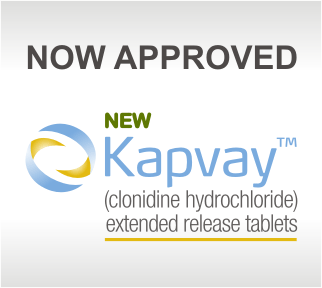FDA Approval: Edarbi
FDA approves Edarbi to treat high blood pressure (source: FDA Press Announcement)
On Friday, February 25, 2011, The U.S. Food and Drug Administration approved Edarbi tablets (azilsartan medoxomil) to treat high blood pressure (hypertension) in adults.
Data from clinical studies showed Edarbi to be more effective in lowering 24-hour blood pressure compared with two other FDA-approved hypertension drugs, Diovan (valsartan) and Benicar (olmesartan).
“High blood pressure is often called the 'silent killer' because it usually has no symptoms until it causes damage to the body,” said Norman Stockbridge, M.D., Ph.D., director of the Division of Cardiovascular and Renal Drug Products in the FDA’s Center for Drug Evaluation and Research. “High blood pressure remains inadequately controlled in many people diagnosed with the condition, so having a variety of treatment options is important.”
Edarbi will be available in 80 milligram and 40 mg doses, with the recommended dose set at 80 mg once daily. The 40 mg dose will be available for patients who are treated with high-dose diuretics taken to reduce salt in the body.
Blood pressure is the force of blood pushing against the walls of the arteries as the heart pumps. If blood pressure rises and stays high over time, it can damage the body in many ways. Nearly 1 in 3 adults in the United States has high blood pressure, which increases the risks of stroke, heart failure, heart attack, kidney failure, and death.
Edarbi is an angiotensin II receptor blocker (ARB) that lowers blood pressure by blocking the action of angiotensin II, a vasopressor hormone.
Adverse reactions reported by patients taking Edarbi in clinical trials were similar to those reported by those taking an inactive drug (placebo).
Edarbi has a boxed warning that says the use of the drug should be avoided in pregnant women because use of the drug during the second or third trimester can cause injury and even death in the developing fetus. If a woman becomes pregnant while using the drug, it should be discontinued as soon as possible.
Edarbi is made by Takeda Pharmaceutical North America of Deerfield, Ill.
For more information on pharmaceutical naming, branding, research or submission documents, please contact Vince Budd at Addison Whitney via email or phone 704.697.4021.
FDA Pharmaceutical Approval: Kapvay

FLORHAM PARK, N.J., Oct. 4 /PRNewswire/ -- Shionogi Inc., the U.S.-based group company of Shionogi & Co., Ltd., today announced the U.S. Food and Drug Administration approval of the non-stimulant medication KAPVAY™ (clonidine hydrochloride) extended-release tablets, an extended-release oral formulation for the treatment of Attention Deficit Hyperactivity Disorder (ADHD) in children and adolescents ages 6-17 years. KAPVAY™ is the only formulation of clonidine hydrochloride approved by the FDA for the treatment of ADHD, and is the first and only FDA-approved ADHD treatment indicated for use as add-on therapy to stimulant medication. KAPVAY™ can also be used as monotherapy when treating ADHD.
An oral, non-stimulant, twice-daily therapy, KAPVAY™ is a centrally acting alpha2-adrenergic receptor agonist. While the mechanism of action of alpha2 agonists in ADHD is not known, it is believed to involve the pre-frontal cortex (PFC) of the brain. Studies suggest that the PFC regulates attention and plays a critical role in impulse control, working memory and executive function.
"The FDA approval of KAPVAY™ represents an exciting milestone in the field of ADHD," said Donald C. Manning, MD, PhD, Chief Medical Officer of Shionogi Inc. "The extended-release formulation of KAPVAY™ minimizes the peaks and troughs in blood levels, thereby decreasing overactivation of the alpha receptors in the brain and periphery. We look forward to providing this important, beneficial treatment for ADHD to patients, both as monotherapy and add-on therapy to stimulants."
"ADHD is a complex disorder that requires individualized treatment. While there are prescription treatment options available, many ADHD patients on stimulants do not achieve adequate control of symptoms," explained Rakesh Jain, MD, MPH, Director of Psychiatric Drug Research for R/D Clinical Research at Lake Jackson, Texas, and an investigator in the clinical trials. "KAPVAY™, when added to a stimulant, addresses an unmet need, and improves ADHD symptoms beyond what is achieved by stimulants alone. This is a significant step forward for the treatment of ADHD to have an approved product for add-on therapy in our treatment armamentarium."
ADHD is a neurobehavioral disorder that occurs in childhood and may continue into adolescence and adulthood, which affects more than 4.5 million children ages 3-17 in the U.S. alone. Approximately 3-7 percent of U.S. school-aged children are believed to suffer from this disorder. Symptoms include difficulty staying focused and paying attention, difficulty controlling behavior, and hyperactivity/over-activity.
For more information on Kapvay or Shionogi, please visit the corporate website or Kapvay product website.
Theravance and Astellas Announce FDA Approval of VIBATIV(TM) (telavancin)
Vibativ was recently approved by the FDA for the treatment of complicated skin and skin structure infections.
"We are very pleased with the FDA's approval of VIBATIV, and extremely excited about the prospect of bringing this new medicine to the market," said Rick E Winningham, Theravance's Chief Executive Officer. "This is a significant event that marks the first approved indication for VIBATIV and validates Theravance's strategies in drug discovery and development. We believe that VIBATIV will become an important medicine addressing the urgent medical need for new antibiotics to treat Gram-positive infections caused by MRSA."
